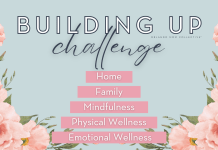It’s not just fun and games. Sports and extra-curricular activities play a crucial role in a child’s physical, social, and emotional development. For children with autism, these benefits can multiply, paving the way for improved motor skills, enhanced communication, and increased self-confidence.
The repetitive, structured nature of sports can align well with the predilections of many kids on the spectrum, offering them a comforting routine while challenging them to push their boundaries. In the same vein, extra-curricular activities provide an inclusive space for these children to explore their interests and express their individuality. From improving motor skills and communication abilities to boosting self-esteem and social interaction, the benefits can make a major impact in their future.
However, introducing children with autism to sports and extra-curricular activities isn’t a simple process. The methods must take into account their unique needs and provide tailored experiences that guide them gently yet persistently towards achieving their full potential.
In this article, we will delve deeper into the strategies that can effectively ease children with autism into these activities. From creating an accommodating environment to building confidence and social skills, our focus will be on making these experiences as enriching as possible.
Tailoring the Environment for Children with Autism
Engaging children with autism in sports and extra-curricular activities hinges largely on the creation of an environment that caters to their specific needs. This involves understanding their unique sensory and communication requirements and adopting a personalized approach to their engagement. The following are key areas to focus on.
1. Catering to Sensory Sensitivity:
Children with autism often have heightened or reduced sensitivity to certain stimuli. This sensitivity can create discomfort or distraction, thereby impeding their engagement in activities. As such, adjustments must be made to address these sensory sensitivities.
For example, creating a quiet zone can provide a haven for children who are sensitive to noise. Similarly, reducing sensory overload, such as limiting bright lights or strong odors, can significantly increase comfort. Tactile considerations, like modifying the fabric of sports uniforms for a softer feel or using noise-cancelling headphones, can also make a world of difference.
Additionally, visual aids can be used to supplement verbal instructions or to illustrate how a task is performed. These aids can help children process information at their own pace and in a way that minimizes sensory stress.
2. Promoting Clear Communication:
Children with autism often best understand clear and concise instructions. This means using straightforward language, short sentences, and, where possible, supplementing verbal instructions with visual aids like charts or diagrams. Using social stories or narratives can also be very helpful, as they provide a context for the activities and outline the sequence of events, helping children understand what to expect and the roles they are to play.
In addition to this, it may be necessary to explicitly teach some social and sports-related conventions that other children may pick up more intuitively, like waiting for one’s turn, or the significance of the whistle in a game.
3. Embracing an Individualized Approach:
Every child with autism is unique, presenting their own set of abilities and challenges. Recognizing this diversity is the first step towards effective engagement. This means that activities and instructions should be tailored to suit each child’s needs and abilities, ensuring they can actively participate and experience success.
For example, one child might benefit from having tasks broken down into smaller, more manageable steps, while another might prefer to have a buddy to model the activity. Some children might enjoy the structure and repetition of a particular sport, while others might thrive in more creative, free-form activities.
Understanding the child’s individual strengths, interests, and challenges can allow for adaptations that make the activity more engaging and accessible for them. This individualized approach not only fosters an inclusive environment but also ensures that each child has the opportunity to shine.
The Transformative Power of Inclusive Activities
Opening the doors of sports and extra-curricular activities to children with autism isn’t just about inclusion. It’s about instigating a transformative process that empowers these children to grow, develop skills, and interact in ways they might not have otherwise experienced. This journey, while challenging, can offer a fresh perspective and a wealth of opportunities.
The journey of each child with autism is unique, and the most important measure of success is not the medals won or the goals scored, but the personal growth, joy, and self-confidence gained through participation. By taking these steps, we can help children with autism discover and unlock their potential. They will not just learn new skills and make friends, but they will also learn about themselves – their strengths, their resilience, and their capacity to overcome challenges. In this way, inclusive sports and activities can truly be a transformative experience for children with autism.
ABOUT BLUESPRIG PEDIATRICS
BlueSprig Pediatrics is a leading provider of Applied Behavior Analysis (ABA) treatment services to children with autism spectrum disorder (ASD). We are dedicated to enabling children with autism not only to learn new skills and make friends but also to discover more about themselves – their strengths, their resilience, and their ability to surpass challenges. To learn more about resources available, visit BlueSprig Pediatrics.


















